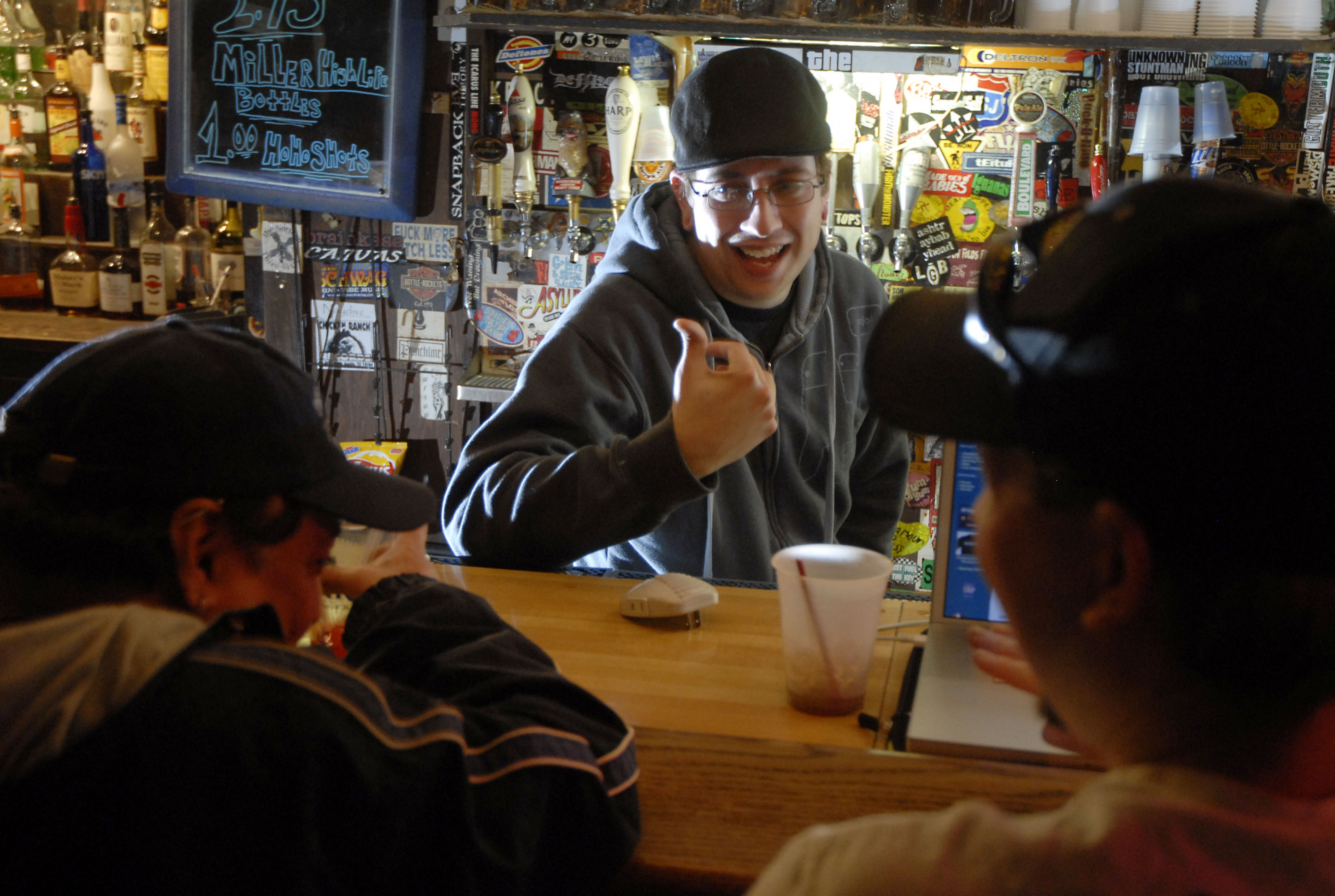A call for bar safety
Fights, gun seizures prompt city leaders to consider adding stricter regulations
Amid new reports of late-night violence in downtown Lawrence, city commissioners vowed Tuesday to take a hard look next week at changing how the city’s bar industry operates.
Commissioners agreed to place on their Jan. 2 agenda a discussion of regulations that could require bars and other entertainment venues to go through a more stringent licensing process.
“I think we’ve dropped the ball on this issue,” City Commissioner Sue Hack said of possible regulations, which were discussed by the commission about six months ago but never acted upon. “We needed to send a stronger message from City Hall. We have to say, ‘We’re not going to have this in downtown Lawrence.'”
The call for action comes a week after Lawrence police officers recovered what they called two “very, very dangerous” assault weapons from a vehicle downtown.
The guns were recovered Dec. 15 as police officers were making increased patrols – including the use of Kansas Highway Patrol helicopters – after the department learned of a possible threat from people attending a concert at Last Call, 729 N.H.
Club licensing
Commissioners didn’t get specific on what new types of regulations they may want to pursue, but previously they discussed creating an “entertainment club licensing” system.
Lawrence leaders have examined Olathe’s licensing system that requires nightclubs – whether they serve alcohol or not – to have a city license if they have an occupancy rating of more than 350 people. The ordinance exempts full-service restaurants, movie theaters and several other types of establishments. It mainly defines an entertainment club as a business that hosts bands or disc jockeys or has a dancing area.
A new licensing system could be useful in Lawrence, city staff members have said, because the city has no legal authority to revoke a bar’s state-issued liquor license. The city is asked to sign off on the state license, but ultimately only the Kansas Department of Revenue can pull it.
Downtown safety
- 6News video: City leaders ‘dropped the ball’ on downtown safety (12-26-06)
- Troubling
trend hits home (12-25-06)
- 2
arrested downtown for gun violations (12-16-06)
- 4
suspects arrested after downtown beating (07-29-06)
- Chat
with a city staff attorney about downtown Lawrence safety issues
(07-07-06)
- City,
bars to talk about safety issues with public (07-06-06)
- Off-duty
police needed to aid security, owner says (06-25-06)
- City
weighing options for dealing with rowdiness, violence at bars
(06-03-06)
The city could revoke an entertainment club license – eliminating the ability to host large crowds – if a business was found to be a place of frequent criminal activity or did not meet security requirements.
Mayor Mike Amyx said now is a good time to discuss the creation of new regulations.
“When we take that oath of office and promise to protect the health, safety and welfare, we take that very seriously,” Amyx said. “With the reports coming in the way they are, I think now is the time to look at it. The message I’m getting from the commission is that we’re ready to look at this in a very serious manner.”
Weapons seized
A Lawrence police spokesman has estimated that officers have seized about 20 weapons that were illegally possessed in downtown during the last several months.
In mid-May, seven shots were fired inside Last Call, sending 200 people fleeing into the street. In February, two men were shot – one fatally – outside the Granada, 1020 Mass., following a concert at the nightclub.
Phil Bradley, executive director of the Kansas Licensed Beverage Association, said he would be happy to discuss the issue with the city. But he’s not sure more regulation is what is needed.
“The city already has a huge toolbox of things they can do with codes, zoning, occupancy standards, fire standards, safety standards,” Bradley said. “At any time the city can walk into an establishment and close it for safety reasons if they have just cause.
“It would seem they could use those things to address their concerns. How much more of a lever do they need?”

Night at the Bottleneck was quiet on December 26, 2006, while bartender Joe Talbot spoke with patrons. City commissioners have reviewed entertainment licensing ordinance downtown about whether there is a need for more officers to patrol downtown.
Julia Peterson, an assistant manager at the Bottleneck, 737 N.H., said she didn’t want businesses that had not been cited for creating problems to have to pay more to comply with regulations.
But she would like city commissioners to address downtown safety.
“We’re leaving work at about the time it seems like trouble starts,” Peterson said. “It can be frightening.”
In addition to the new entertainment club licensing system, city staff members have researched:
¢ creating a new city-run program to train nightclub bouncers and security personnel,
¢ using closed-circuit television cameras in city parking lots and street lamps to allow police to monitor activity in real time, and
¢ employing a system that would allow bars to band together and ban certain individuals from their establishments.
Amyx said he also wanted information from staff on how much it would cost to have additional police officers patrolling the downtown area near closing time.
Staff members also said they were researching the legality of creating staggered closing times for bars, so that the release of patrons into the street would occur at different times.







